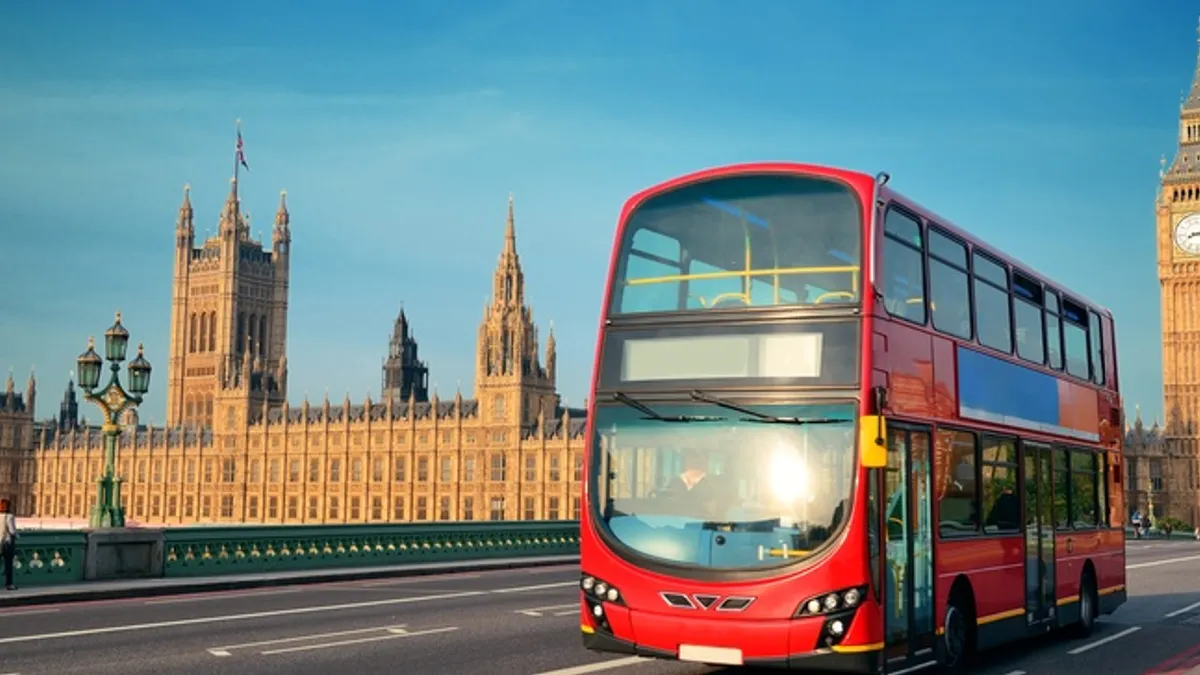Dive Brief:
- On Monday, leaders in 12 major cities around the globe — London, Paris, Los Angeles, Copenhagen, Barcelona, Quito, Vancouver, Mexico City, Milan, Seattle, Auckland, and Cape Town — pledged to cut transportation-related pollution by signing the Fossil-Fuel Free Streets Declaration, according to Reuters.
- The pledge encourages cities to transition to clean transit by procuring only zero-emissions buses beginning in 2025 and "ensuring a major area of [the] city is zero emission by 2030."
- In order to meet these goals, participating cities are committing to collaborate with vehicle suppliers, actively promote walking and cycling, and publicly report progress every two years, among other strategies.
Dive Insight:
The leaders of each city, all members of the C40 coalition, announced the pledge during the recent Together4Climate event in Paris. The pledge was developed in light of research showing one-third of greenhouse gas (GHG) emissions from C40 cities comes from transportation and traffic, also negatively impacting local economies. By pledging zero-emissions vehicles and more clean transit, participating cities will not only reduce GHG emissions, but could also make cities more physically attractive, improving air quality, extending bike lanes and adding green space for walking and recreational activities.
Many cities that joined this pact have already made significant efforts to improve city transit. London Mayor Sadiq Khan released a plan in June that would reduce city transit emissions to zero by 2050, while Los Angeles County Metropolitan Transportation Authority (Metro) announced plans in August to electrify its 2,200 bus fleet by 2030. Despite individual initiatives, joining together on the pact will give each city support and a deeper sense of buy-in to make significant changes across the city, and to maintain status as a role model for other urban areas hoping to make similar commitments.
While it is encouraging for 12 of the largest, most impactful metropolitan areas around the globe to send a clean transit message to the rest of the world, it's evident that the United States could do more. Only Seattle and Los Angeles represented the U.S. in this pledge, while other U.S. C40 cities — Austin, Boston, Chicago, Houston, New Orleans, New York, Philadelphia, Portland, San Francisco and Washington D.C. — held off. Despite directives from the Trump administration to steer away from climate goals, it is up to mayors in these cities to stand their ground and lead the change. However it is likely that such cities will continue to push individual clean-transit agendas despite not being part of this pact.












